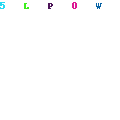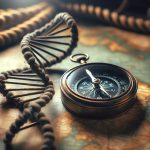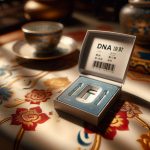The International Commission for the Accreditation of Professional Genealogists, commonly known as ICAPGen, stands as a beacon of professionalism within the world of genealogy. This non-profit entity dedicates itself to elevating standards in genealogical research by accrediting professionals across the globe. Brandon Baird, who leads ICAPGen, sheds light on what it means to be a genealogist and why having recognized credentials is vital in this specialized field.
Genealogy isn’t just about tracing family trees; it’s a detailed investigation that requires expertise and precision. Baird emphasizes that through accreditation, genealogists can prove their proficiency and reliability in navigating complex ancestral pathways. Such validation not only boosts their credibility but also instills confidence among those seeking to uncover their lineage with accuracy.
In essence, ICAPGen’s mission revolves around ensuring that individuals engaged in unraveling familial histories possess the necessary skills and knowledge. By setting high standards, they ensure that the journey back in time is both trustworthy and enlightening for everyone involved.
Understanding the Function of a Genealogist and ICAPGen’s Accreditation Criteria
Earning accreditation from ICAPGen is a mark of true expertise in the field of genealogy. It signifies that an individual possesses a deep understanding and practical knowledge in several critical areas such as historical context, geographical nuances, research methodologies, and language skills necessary for accessing and interpreting records from different regions. Successfully navigating through ICAPGen’s rigorous testing process showcases one’s ability to not just access both digital and non-digital archives but also analyze, transcribe, translate, and abstract documents with proficiency.
The journey toward accreditation involves a series of challenging steps designed to prove one’s mettle. Initially, candidates embark on a detailed project that traces the lineage of a family across four generations. This exercise requires uncovering comprehensive genealogical details about each member including their birth, marriage, and death records supported by an exhaustive written report complete with research logs and documented evidence.
Following this initial success, the candidate faces a grueling four-hour examination focused on document analysis which tests their capability to extract key information, create effective research plans for hypothetical scenarios while demonstrating thorough knowledge affects record integrity like geography or historical events.
Completing these stages leads them to undertake a final challenge: solving a designated research problem within four hours. This includes compiling family group records, pedigree charts among other requirements demonstrating their ability to efficiently manage time-sensitive tasks.
Upon achieving ICAPGen accreditation, individuals open up avenues for themselves in various professional settings ranging from archival work to roles at major genealogical organizations like Ancestry or Legacy Tree Genealogists. The accreditation serves as proof positive of their specialized skill set in genealogy allowing them the freedom to pursue avenues aligned with their interests within this scholarly domain.
What are the modern moral issues in genealogy studies, and how does ICAPGen deal with them?

Determining the skill level of a genealogist poses a significant ethical dilemma, as there isn’t a universal benchmark for evaluating their research capabilities. Unlike other professions that require evidence of expertise before one can practice, genealogy doesn’t mandate any formal qualifications. However, our organization addresses this gap by implementing a stringent accreditation process for genealogists seeking our endorsement. This process ensures that only those with proven expertise earn the right to be recognized.
Genealogy research is fraught with uncertainty; even the most knowledgeable experts can face dead ends due to missing or destroyed records. Acknowledging this reality underscores the importance of rigorous vetting—our certification offers peace of mind to clients by affirming that an accredited genealogist possesses both the knowledge and persistence necessary for thorough research.
Moreover, we offer additional value by mediating disputes between genealogists and their clients, but only if those professionals have earned our accreditation. This support not only fosters trust between parties but also reinforces our commitment to maintaining high standards within the field of genealogy. Through these measures, we aim to build confidence in the services provided by accredited researchers and ensure client satisfaction in what can often be a challenging journey into family history.
What current trends or technologies interest you in your field?
The significance of DNA in the realm of genealogy is rapidly becoming undeniable. However, ICAPGen faces a notable challenge as it strives to integrate DNA evidence into its framework. This endeavor is complicated by concerns surrounding ethics and privacy. Although efforts are underway to find a suitable approach that respects these sensitivities, an effective solution remains elusive.
Simultaneously, there’s a burgeoning interest in tracing family histories among the general populace. This curiosity has translated into an uptick in demand for professional genealogists who can undertake this personal research journey on behalf of others. From my observation, requests for such services have seen a noticeable increase recently—a trend that I find particularly intriguing despite the lack of concrete statistical backing at this moment.
This emerging pattern underscores not only the growing fascination with one’s lineage but also highlights the evolving challenges and opportunities within the field of genealogy research itself.
What’s the future outlook for genealogy as a career?
In today’s world, demonstrating expertise in research is becoming increasingly vital, especially for those working within specific regions. The rise of organizations like ICAPGen underscores this trend, offering a platform for professionals to validate their skills beyond national borders. This has led to a surge in international participants eager to obtain accreditation, showcasing the global reach and importance of such certifications.
For genealogists, the pressure to exhibit professional qualifications is more pronounced than ever. Not only does it enhance their credibility, but it also instills greater confidence among clients seeking their services. As the field becomes more competitive and interconnected, possessing validated competencies stands as a critical differentiator that benefits both the genealogist and their clientele.




















